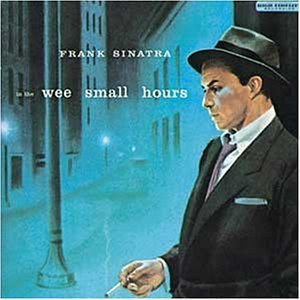
After five and a half years, I am finally nearing the end of my doctoral studies. I expect to defend my dissertation next fall, and I have my dissertation recital scheduled for the end of April, which is giving me serious pause, since it’s been a long time since I’ve sung an entire evening-length concert; motherhood has eaten its way into both my chops and my ability (and desire) to maintain them. Nonetheless, it must be done, so I am hoping and praying that I’ll be able to do a passing job, and trying to practice in short increments whenever I get them.
The recital program is going to be heavy on twentieth-century British art song. I’m singing a song cycle by the young Scottish composer James MacMillan (a Catholic, incidentally, who’s written a lot of interesting sacred music), and also a group of early twentieth-century songs in the
English pastoral vein, including the ravishing “Silent Noon” by Ralph Vaughan Williams, a setting of a
sonnet by Dante Gabriel Rossetti.
Yesterday I was sitting at the kitchen table listening to
a wonderfully-sung and straightforwardly-interpreted recording of English art song by Bryn Terfel and Malcolm Martineau , and when “Silent Noon” started, I found myself in tears. My two-year-old son exhorted me to be “happy, happy!” But the tranquil opening chords brought back powerful memories of my dear friend
John Allitt, who died almost exactly a year ago, and whose last published work was a book on the English composers written in Italian for his Italian publisher.
John’s obituary tells who he was far better than I ever could. We first corresponded in 2000, when, in the course of researching esoteric influences on nineteenth-century Italian music (a project that, probably quite rightly, ended up falling by the wayside), I came across an allegorical/Arcadian poem that the early nineteenth-century composer
Giovanni Simone Mayr had copied into one of his notebooks. The author of the anthology in which I found the poem put me in touch with John, a prominent scholar of Mayr and his circle. However, this was not the first time I’d come across John’s work. Several years earlier, while still a soprano, I had been double-cast as Lucia di Lammermoor in a production of Donizetti’s opera, and one day the other Lucia brought some fascinating pages to rehearsal, an analysis of the opera from the perspective of Christian mysticism, which turned out to have been photocopied from John Allitt’s
book on Donizetti.
In 2001 I made my first recital appearance in England, and it was then that I met John for the first time. He and his lovely wife Eleanor came to the performance, and a few days later I traveled to their home in the Midlands, where I was a guest for a week. Over the course of that and two other visits, intermittent telephone calls, and many, many dozens of letters (the real, hand-written kind), John and I became great friends. A scholar of art history, Dante, and Thomas Traherne in addition to nineteenth-century music, in many ways John was responsible for my going to graduate school and taking up academic music studies, although he never suggested I do so. And, though a fervent convert to the Eastern Orthodox Church, he was also in many ways responsible for my returning to the Roman Catholic Church. My first published article was dedicated to him, and my dissertation will be as well. Not long before he died, I found out, amazingly, that the two-hundred-year-old cottage where he lived had been a building on the grounds of the estate where the
Princess Belgioioso, an important patron of
Fr. Hermann Cohen, stayed while in England, and from which she sent several letters to Liszt discussing Hermann. My last correspondence with John was on this matter.
When his wife sent me the news of his death, I was shocked, but not surprised. It had been almost three years since I’d last seen him, and, though I kept hoping to be able to return to England after my son’s birth, there was never the chance. There wasn’t the money for me to fly to England for his funeral, and a few days later, I lost the baby I was carrying, along with one of my ovaries, when the pregnancy turned out to be ectopic and ruptured through the tube, requiring me to have emergency surgery. I prayed and prayed to John to save the child, but it was not to be.
Now when I think of him, I feel a desolate sinking in the pit of my stomach, the way I feel at take-off when I have to take a trip by plane: the sense of being impossibly far from home and unable to return there of my own will. I don’t know how one ever reconciles the losses and leave-takings of this life with St. Paul’s injunction to “rejoice always.” I miss John terribly and long for his friendship and guidance.
To listen to "Silent Noon," go
here.



















